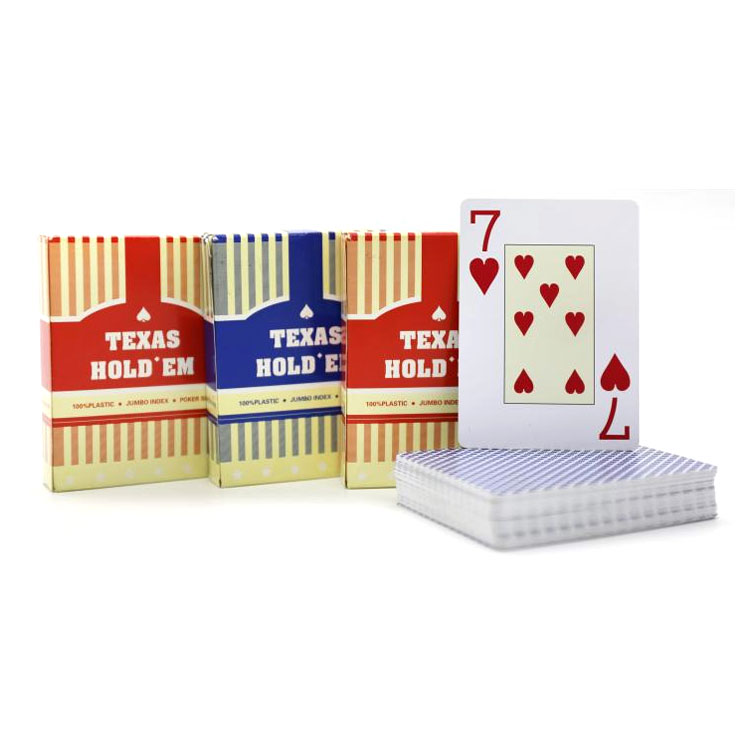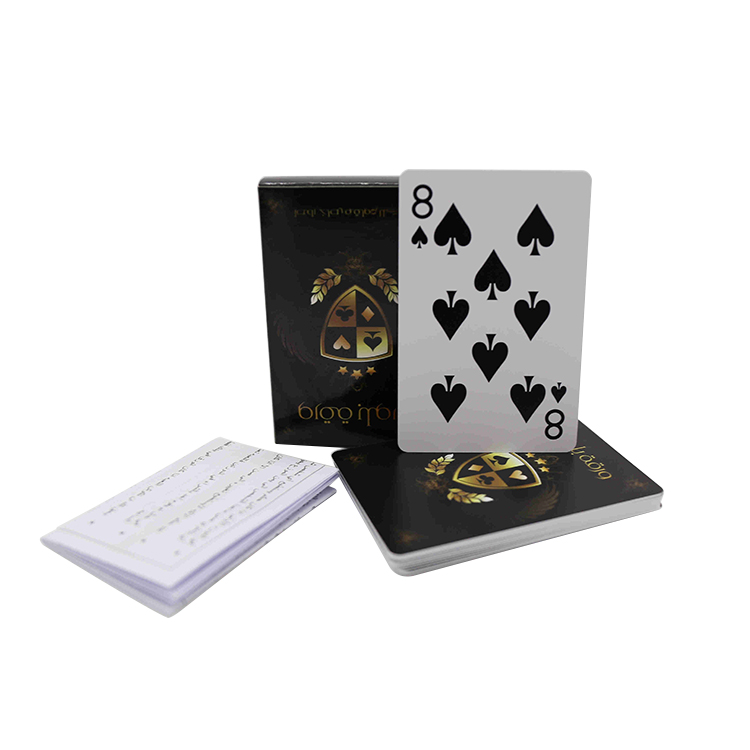Playing cards have been a popular game and entertainment tool for centuries. With the advancement of technology, playing cards now come in various materials, including plastic and paper. While both plastic and paper playing cards have their benefits and drawbacks, So when we need to customize playing cards, should we choose plastic or paper?
In this article, we will compare and contrast the two materials and try to determine the better choice for playing cards.

Durability
One of the most significant differences between plastic and paper playing cards is their durability. Plastic playing cards are known for their ability to withstand wear and tear for longer periods. Plastic cards are more resistant to bending, tearing, and fading than paper cards and are less likely to get marked by spills or dirt.
This durability factor makes plastic playing cards the perfect choice for games that involve a lot of shuffling and handling. They can be used for a long time without showing wear and tear. In contrast, paper cards are not as durable and will quickly show signs of damage after only a few uses.
Ease of Cleaning
Another significant difference between plastic and paper playing cards is their ease of cleaning. Plastic cards are easy to clean, as they are non-porous and can be wiped clean with a damp cloth. They are also more resistant to spills and can quickly dry off without damage.
On the other hand, paper cards are not easy to clean, and any spills or marks can permanently damage them. If a paper card gets wet, it will become soft, and the ink may smear, making it difficult to read the card.

Shuffling and Handling
Plastic cards are easy to shuffle and handle because they are slippery and flexible. Players can shuffle them quickly and easily, making them perfect for games that require a lot of shuffling, such as poker or bridge. They also don’t stick together as easily as paper cards, making it easier to deal them out to players.
In contrast, paper cards are less slippery and flexible, making them more challenging to shuffle and handle. They can stick together, making it more difficult to deal out the cards to players. This can slow down the game, which can be frustrating for some players.
Cost
The cost of plastic and paper playing cards can vary depending on the quality and brand. Generally, plastic playing cards tend to be more expensive than paper playing cards. However, they are also more durable and can last longer, saving money in the long run. In contrast, paper cards are less expensive but may need to be replaced more often due to wear and tear.
Eco-Friendly
When it comes to the environment, plastic playing cards are not the best choice. Plastic cards are made from petroleum-based materials and are not biodegradable, meaning they can decompose for hundreds of years. They also contribute to the plastic pollution problem that we face today.
Paper playing cards, on the other hand, are more environmentally friendly. They are made from renewable resources such as wood pulp, which can be recycled. While paper cards may not last as long as plastic cards, they are biodegradable and will break down over time.
Conclusion
In conclusion, plastic and paper playing cards have benefits and drawbacks. Plastic cards are more durable, easier to clean, and easier to shuffle and handle, making them the better choice for games that require a lot of shuffling and handling. They are also more expensive and have a negative impact on the environment.
Paper cards are less durable and harder to clean but more affordable and environmentally friendly. They are also suitable for games that don’t require a lot of shuffling and handling.
Ultimately, the choice between plastic and paper playing cards comes down to personal preference and the type of game being played. Plastic playing cards are the better choice if you want durability and ease of use. Paper playing cards may be the better choice if you want affordability and environmental friendliness. Whatever material you choose, playing cards are a fun and entertaining way to spend time with family and friends.
